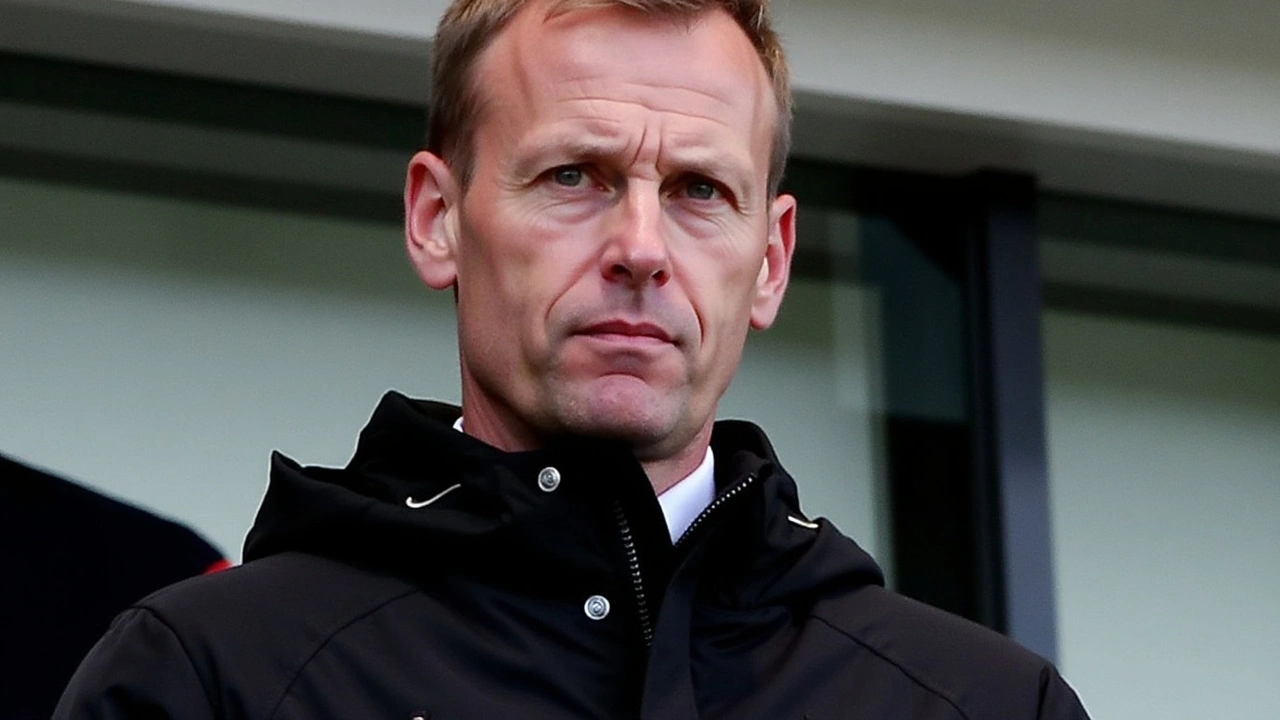Manchester United Faces Changes as Dan Ashworth Departs
The football world is abuzz with the latest news from Old Trafford: Dan Ashworth, the now-former sporting director of Manchester United, has left the club. Only five months into his tenure, this abrupt departure after a mutual agreement with the club has raised several eyebrows within the sporting community. Amidst discussions and conjecture, much attention is being focused on the reasons behind such a quick exit, especially in the high-stakes atmosphere of Premier League football.
Manchester United confirmed the news on December 8, 2024, after Ashworth's last discussion with chief executive Omar Berrada. This meeting followed a rather disappointing result for the team—a 3-2 defeat at the hands of Nottingham Forest. His exit is mired in a potpourri of management changes, substantial financial deals, and perhaps an unavoidable clash of management styles and ambitions.
A Quick But Noteworthy Tenure at Old Trafford
Dan Ashworth's story with Manchester United began as recently as July 2024. Having spent a substantial period on gardening leave from Newcastle United, his move to United came with heightened expectations. The club had paid a handsome compensation sum, pegged between £2 and £3 million, to facilitate his early appointment. This figure underscores the initial faith and belief the club had in Ashworth's vision and capabilities.
The sporting director role is fiercely demanding, involving the coordination of player signings, scouting, and fostering an environment conducive to both current success and sustainable growth. Ashworth, in the short period he was with United, oversaw significant financial transactions—chiefly in the player transfer department. The summer saw a whirlwind of activity, with marquee signings like Leny Yoro, Manuel Ugarte, Matthijs de Ligt, Noussair Mazraoui, and Joshua Zirkzee, cumulatively amounting to an investment of around £200 million.
The Transition That Could Have Been
Despite these significant steps, Ashworth's time at Manchester did not translate into seamless operations. It is reported that the transition was marked by unforeseen challenges and discord. The management, particularly the coaching team led by recently appointed Ruben Amorim, found themselves under intense pressure to forge a cohesive team from both recent acquisitions and existing talent. Amorim's appointment, a decision heavily linked with Ashworth, is rumored to have been a pivotal point in discussions leading to Ashworth's departure.
Though specifics remain out of the public purview, insiders hint that the dynamics within Manchester United during this period were far from smooth. Perhaps the strain of aligning vision at all levels—board, management, team, and fans—played a role in exacerbating tensions. As the dust begins to settle, it has become evident that the progressive and structured roadmap anticipated at the start of Ashworth's tenure was laden with roadblocks.
Behind the Scenes: Strategy and Leadership
Delving further into the inner workings, it emerges that Sir Jim Ratcliffe, co-owner of Manchester United, is suspected to have wielded significant influence in the decision. The high-profile nature of football clubs necessitates clarity in direction and unity, a characteristic seemingly lacking amidst the management shuffle. Ratcliffe's hand in the decision suggests a strategic maneuver to stabilize the club for its long-term goals, potentially reallocating responsibilities and redefining its leadership architecture.
Manchester United, despite this turbulence, has kept a gracious tone in its public correspondence. The club has openly expressed appreciation for Ashworth's contributions, acknowledging his efforts during what was considered a 'transitional period'. It also underscored a parting note wishing him well in future endeavors—a gesture that perhaps hints at Ashworth's own recognition of the misaligned objectives and mutual acceptance of the situation.
Reflecting on the Future
For Manchester United and its legion of fans, the road ahead is now focused on coherence and consistent performance. With key responsibilities like those formerly held by Ashworth temporarily in flux, there remains a significant emphasis on the importance of a sporting director. The challenge now lies in scouting for a candidate who can not only navigate the high demands of the role but also synchronize with the club’s new-found strategy.
As for Ashworth, the prospect of future engagements is inevitable. His decorated experience and reputation stand firm, regardless of this stint, casting him in favorable light for potential roles in other prestigious clubs seeking his expertise. As both parties move forward, the case of Ashworth at Manchester United serves as a compelling narrative in football’s ever-dynamic managerial landscape, underscoring yet again the critical balance of aptitude, timing, and harmony in professional partnerships.


Author
Ra'eesa Moosa
I am a journalist with a keen interest in covering the intricate details of daily events across Africa. My work focuses on delivering accurate and insightful news reports. Each day, I strive to bring light to the stories that shape our continent's narrative. My passion for digging deeper into issues helps in crafting stories that not only inform but also provoke thought.